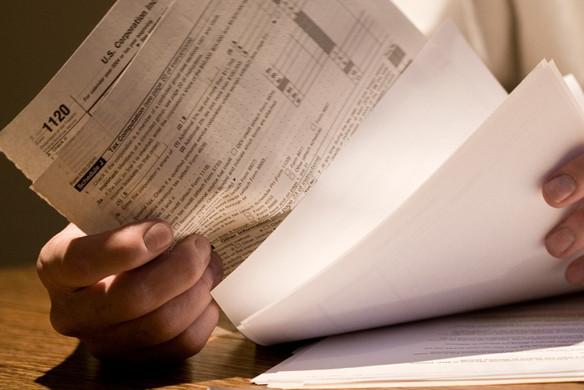Table of contents
With a complicated subject like sales tax, there aren’t a whole lot of general rules. However, over the years we have found that there are at least seven truths when it comes to this nit-picky consumption tax that all retailers have to deal with.
Rule #1: Every state’s sales tax is slightly different.
In other words, no two states are going to be alike when it comes to how they legislate and regulate sales tax. This is because sales tax in the U.S. is totally governed at the state level. There is no national sales tax. And each state gets to decide just exactly how it wants to tax – from what items are taxable (or nontaxable) to how much to charge.
To make matters more complicated, most states also allow local areas to levy a sales tax. That’s why, if you’re shopping, you’d pay sales tax at eight percent in Stamford, New York, and then 8.75 percent in Buffalo, New York.
The key takeaway here? Don’t assume you know one state’s sales tax just because you’re familiar with another state’s sales tax rules. All states are truly different animals when it comes to sales tax.
Rule #2: Every company’s sales tax obligations are different.
In the U.S., retailers are only required to collect sales tax in states where they have sales tax nexus. Sales tax nexus is just a fancy way of saying “significant presence” in a state. Although every state is slightly different when it comes to what creates nexus, factors that can create sales tax nexus include:
- A location like a store, office, or warehouse
- Personnel like employees, sales people, or contractors
- Affiliates
- Inventory stored in a warehouse
- A drop-shipping relationship
- Temporary business activities, such as selling at a tradeshow
Further, while most tangible personal property is taxable, in some states items like clothing, groceries, or textbooks may not be taxable. Because of these factors, every retailer’s combination of sales tax requirements is a little different.
Rule #3: The more you sell, the more often you file.
When you determine you have sales tax nexus and register for your sales tax permit, the state will assign you a filing frequency. This means you’ll generally file your sales tax returns every month, every quarter, semi-annually, or annually.
As a general rule, the more sales tax you collect in a state, the more often the state wants you to file a sales tax return and remit sales tax. For better or for worse, states use sales tax to pay for budget items like schools, roads, and public safety, so they don’t want to leave that money sitting in your business bank account for too long!
Rule #4: How much sales tax online sellers collect varies.
For a brick-and-mortar store owner, collecting sales tax is pretty simple. You collect the sales tax rate where your store is located. But for an online seller, things get more difficult. For sales tax purposes, sales tax is charged at the point of sale. And with many online purchases, the point of sale is considered your buyer’s ship-to address.
Let’s take the New York example above. Say you are an online seller who lives in Stamford, New York, but you make a sale to a buyer in Buffalo. Because of New York’s “destination-based sourcing” sales tax rules, you’d be required to collect not your home rate of eight percent but the Buffalo rate of 8.75 percent.
Figuring out how much sales tax to collect can get difficult, but you can read a whole lot more about how much sales tax to collect from your online buyers here.
Rule #5: Sales tax mistakes often result in fines and penalties.
Because of all the varying rules and laws we’ve been discussing, it can be distressingly easy to make a sales tax mistake. One common mistake is forgetting to pay on time. In some states sales tax is due on the 20th day of the month after the taxable period. In other states it’s due on the last day of the month, or the 15th, or the 23rd. If you file sales tax in more than one state, it can be easy to get tripped up.
Another common mistake is collecting or reporting the wrong amount of sales tax. If you’re an online seller, it can be surprisingly easy to forget to collect sales tax on one of your channels. Unfortunately, these mistakes can result in penalties and interest — even for totally honest mistakes.
On a brighter note, some states are more lenient than others and will waive a first-time fine or penalty. It’s always a good idea to at least try to get a penalty or interest forgiven.
Rule #6: The rules can (and do) change.
It’s important to keep on top of notices from your state. Sometimes sales tax rates change, or the state changes your sales tax filing frequency. In other cases a state starts taxing an item it didn’t tax before, or stops taxing an item that used to be taxed.
On a larger scale, online sales tax laws are also changing. While things are still up in the air, several states are attempting to buck the precedent set by the U.S. Supreme court in 1992 in the Quill v. North Dakota case, and require sellers with no nexus in a state to collect sales tax (or using a brand-new definition of nexus). You’ll likely see internet sales tax in the news in the coming months. You can also look here for updates on all internet sales tax related issues.
Rule #7: You can automate to save time on sales tax hassles.
Sure, sales tax has a lot of moving parts. But luckily technology comes to the rescue. You can automate sales tax collection, so you never have to worry about charging your online buyer the right rate. And you can automate sales tax reporting and filing, so you never have to worry about parsing complicated spreadsheets and tax tables, or missing a sales tax filing due date. You’re busy enough growing your business without spending time on an unprofitable administrative hassle.
About TaxJar
TaxJar is a service that makes sales tax reporting and filing simple for more than 8,000 online sellers. Try a 30-day-free trial of TaxJar today and eliminate sales tax compliance headaches from your life!
![]()











